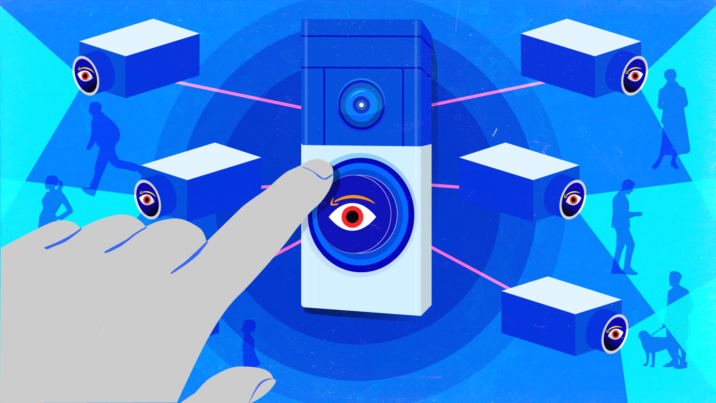
Amazon was caught red-handed, handing over Ring doorbell footage to law enforcement agencies without user permission, subpoenas, warrants, without any of the traditional legal controls which prevent liberal disclosure of non-public data to law enforcement. This disclosure was set to further ignite ongoing debates about privacy and civil liberties in relation to the tech giant’s video-sharing agreements with police departments nationwide.
But it didn’t. That’s why I’m writing about it now. It barely got a blip of publicity in 2022, when it was revealed for the first time. In 2022 it came out that this had happened on several, namely 11, different occasions. What’s changed? Why does nobody seem to care about massive corporate overreach, abuse of users (and power), and the sickening, slowly forming corporatocracy? The company has multi-million dollar, single-source contracts with the Federal government, namely the US intelligence community. Why has nothing been done? What will it take for the people to make a change? Regardless, here’s a recap of last year’s events.
This information came to light via a letter from Amazon, made public by Senator Edward Markey. Previously, Ring had made clear that it would not disseminate customer data to law enforcement without user consent, a formal warrant, or in “an exigent or emergency” situation. Amazon’s letter, dated July 1, clarified that the 11 instances of video sharing in question were deemed emergencies, marking the first public admission of such actions by the company. The letter, however, did not specify which videos were shared.
Amazon’s Vice President for Public Policy, Brian Huseman, explained in the letter that in each case, “Ring determined in good faith that there existed an immediate threat of death or severe physical harm to a person that necessitated the swift disclosure of information.”
Huseman further elaborated that Ring “maintains the right to respond promptly to pressing law enforcement requests for information.” The decision to share video footage without user consent is based on the details provided in an emergency request form and the circumstances described by law enforcement.
The Internet Patrol is completely free, and reader-supported. Your tips via CashApp, Venmo, or Paypal are appreciated! Receipts will come from ISIPP.
However, some requests from law enforcement sparked concerns about the potential misuse of Ring footage. For example, the Electronic Frontier Foundation, a non-profit digital rights group, reported that the Los Angeles Police Department had sought Ring footage of Black Lives Matter protests in 2020.
According to Markey’s office, the evidence illustrates a close connection between Ring and law enforcement and a growing trend of police using the platform. Amazon’s letter revealed that 2,161 law enforcement agencies are currently enrolled in Ring’s Neighbors app, a community for residents to share videos captured by their home security cameras. This figure marks a five-fold increase since November 2019.
Markey also criticized Amazon for its lack of clarity about the audio recording capabilities of Ring products. Amazon had stated in its response letter that what Ring captures “depends on numerous factors, including device positioning and environmental conditions.”
This revelation about Ring came at a time when Amazon was under increased antitrust scrutiny in Congress over its e-commerce business practices, including allegations of undermining merchants who sell on its platform by producing “knock-off” products and promoting them prominently on its site. I don’t believe anything came of that investigation (well, I’m sure some pockets got greased and I’m sure Amazon made a public statement with words like “commitment”, “integrity”, and so on). Markey and several other Democratic lawmakers were also advocating for a bill that would ban the use of biometric technology by federal agencies and tie federal grant funding to states and localities based on their imposition of a moratorium on such technology use. Wonder what came of that?
Mai Nguyen, a spokesperson for Ring, initially countered this situation in the following statement: “It’s simply untrue that Ring gives anyone unrestricted access to customer data or video, as we have repeatedly made clear to our customers and others.” She added that legal provisions allow companies like Ring to share information with government entities in emergency situations that involve a threat of death or severe physical injury to any person, such as in cases of kidnapping or attempted murder. According to Nguyen, “Ring faithfully applies that legal standard.” I’m not so sure I trust her word.
The Internet Patrol is completely free, and reader-supported. Your tips via CashApp, Venmo, or Paypal are appreciated! Receipts will come from ISIPP.









